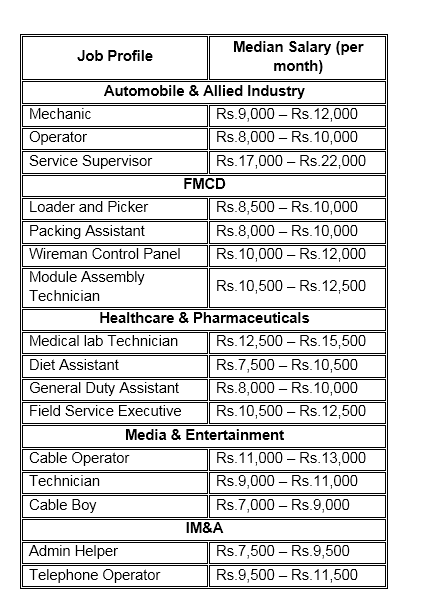
The Union cabinet has cleared the labour code on minimum wages. The wage code bill has proposed a minimum wage of Rs 18,000 which experts say could impact job creation at the entry level since not all companies will be in a position to increase their wage bill across all locations in adherence to the law.
Rituparna Chakraborty, Executive Vice President and Co-founder at TeamLease Services & President Indian Staffing Federation said that this could mean that industries will start automating at a faster rate thereby further impacting job creation.
“The idea of the Wage Code Bill was to comprehensively rationalise four different laws into one and bring about uniformity in definitions. The fact that the wage code bill got high-jacked into universal minimum wage agenda is confusing. Formal job creation should be the only agenda that drives any labour reform in this country,” she added.
Hence, companies would either hire less or take temporary staff to meet the job requirements. There is also a fear that unorganised workers could be engaged for entry-level jobs by smaller players and this would go unaccounted.
Currently, there is a difference of 10-30 percent in the wages paid in one region to another. The level of development, economic prosperity, and standard of living apart from costs of rent, food and transport are considered before deciding on the final compensation of a worker. For instance, average wages in Mumbai are almost 30 percent higher than that of Kolkata due to the higher cost of food and house rent in the former.
It is anticipated that creating a minimum wage barrier of Rs 18,000 will negatively impact entry-level jobs at many industries across automobile, construction and real estate, e-commerce, logistics, educational services, FMCG, healthcare and pharma, hospitality, industrial manufacturing and allied sectors, media and entertainment and retail and telecom.
Human resources firm TeamLease Services said that if the Bill is passed in its entirety by the Parliament it will be particularly disastrous for small-scale industries. It added that the Bill will hamper formal job creation in the country.
The Code of Wages Bill is set to subsume four existing laws related to wages and compensation. According to a report by Labour Ministry, about 44 different labour laws will be condensed into different bills including industrial relations, social security and safety, health and working conditions, apart from the one on wages.
Wages paid to workers are based on skill categorisation. While there is also the pay parity issue between male and female workers, Sonal Arora, Vice President, TeamLease Services said that this Bill may be unable to deal with the issue.

Data from TeamLease showed that the median salary in various sectors is less than Rs 18,000. Increasing this by Rs 5000-7000 will increase wage costs of the company and it is expected that companies will reduce the workforce to save costs. They said that the bill if passed will place considerable burden on the employers as they will not be able to pass on this sudden rise in cost to customers.
This Bill proposes that there would be a universal minimum wage. This would mean that irrespective of the location of the job and the qualification of the candidate, the wages paid would be the same.
[“Source-moneycontrol.”]